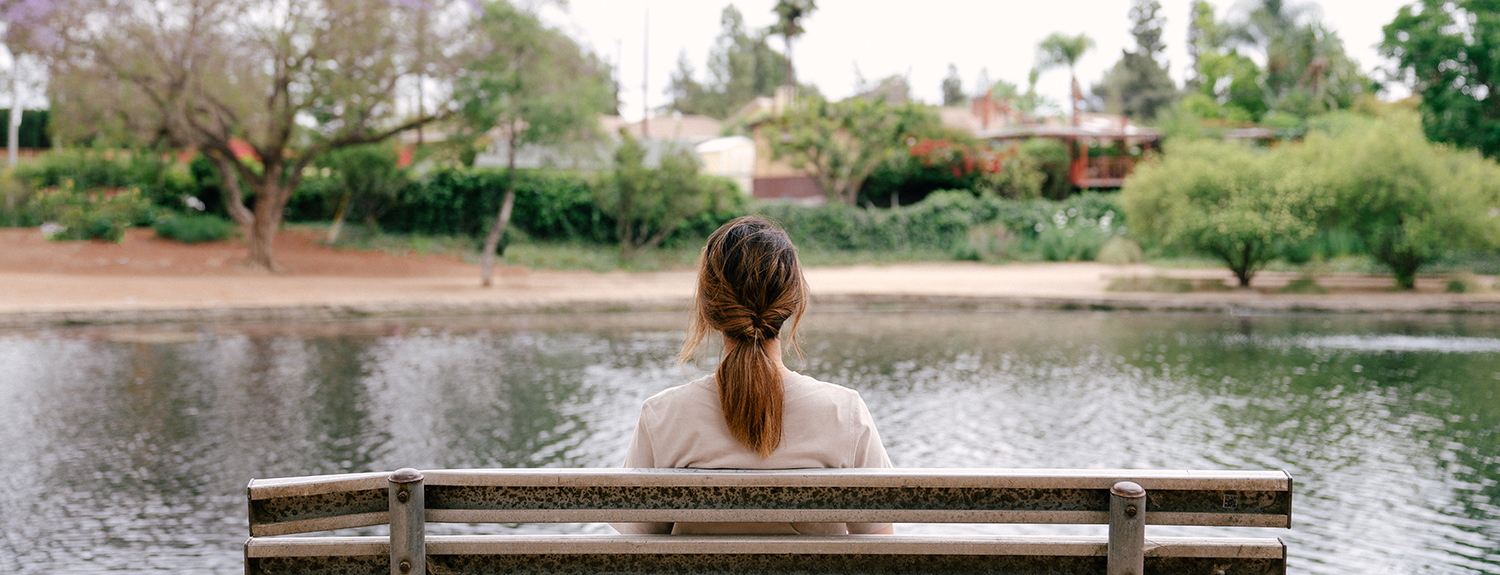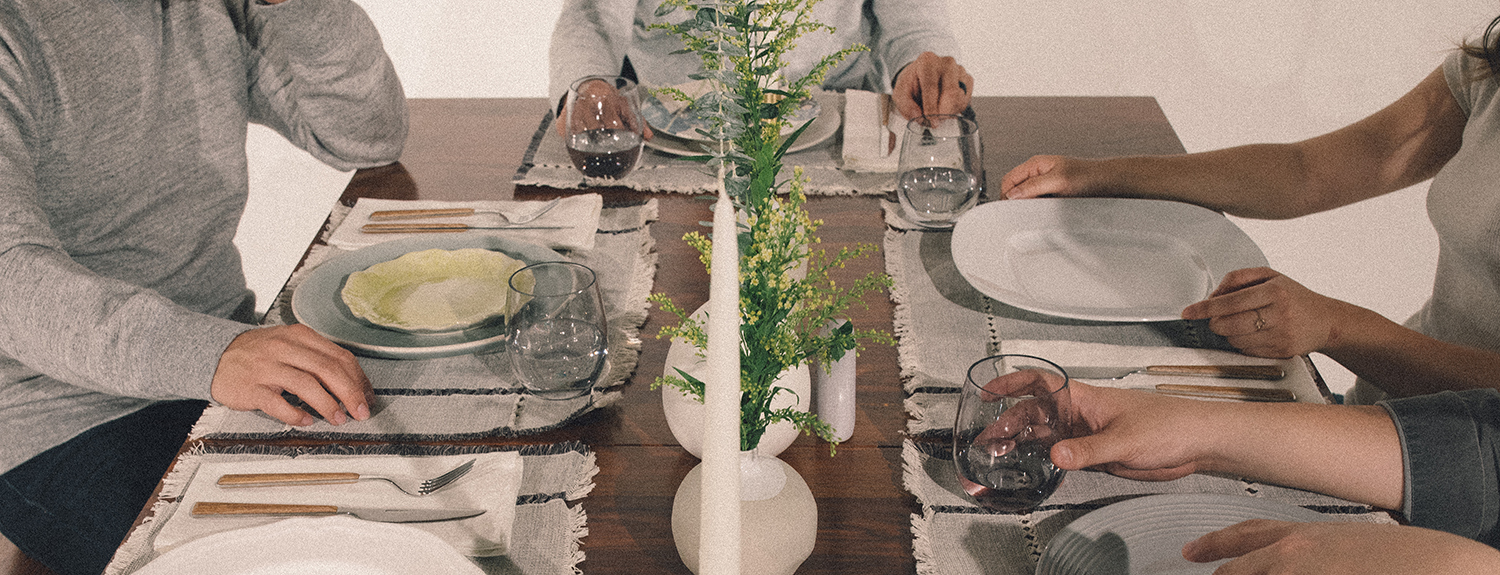The Ties That Bind Us (Janette Ok)
Still Being Saved
“I don’t even know if I really like you or if the medication is making me like you,” Jenn said to Nuri through her tears. With the shifting of doses, the depression, the therapy, revisiting the trauma, the ground beneath her seemed to flip from under her. Circling around and around, it was as if she was drowning and unable to grasp at anything concrete.
Where did the trauma end and reality begin?
I need to take care of myself.
I am not accepted.
I am alone.
These thoughts fill her lungs like water.
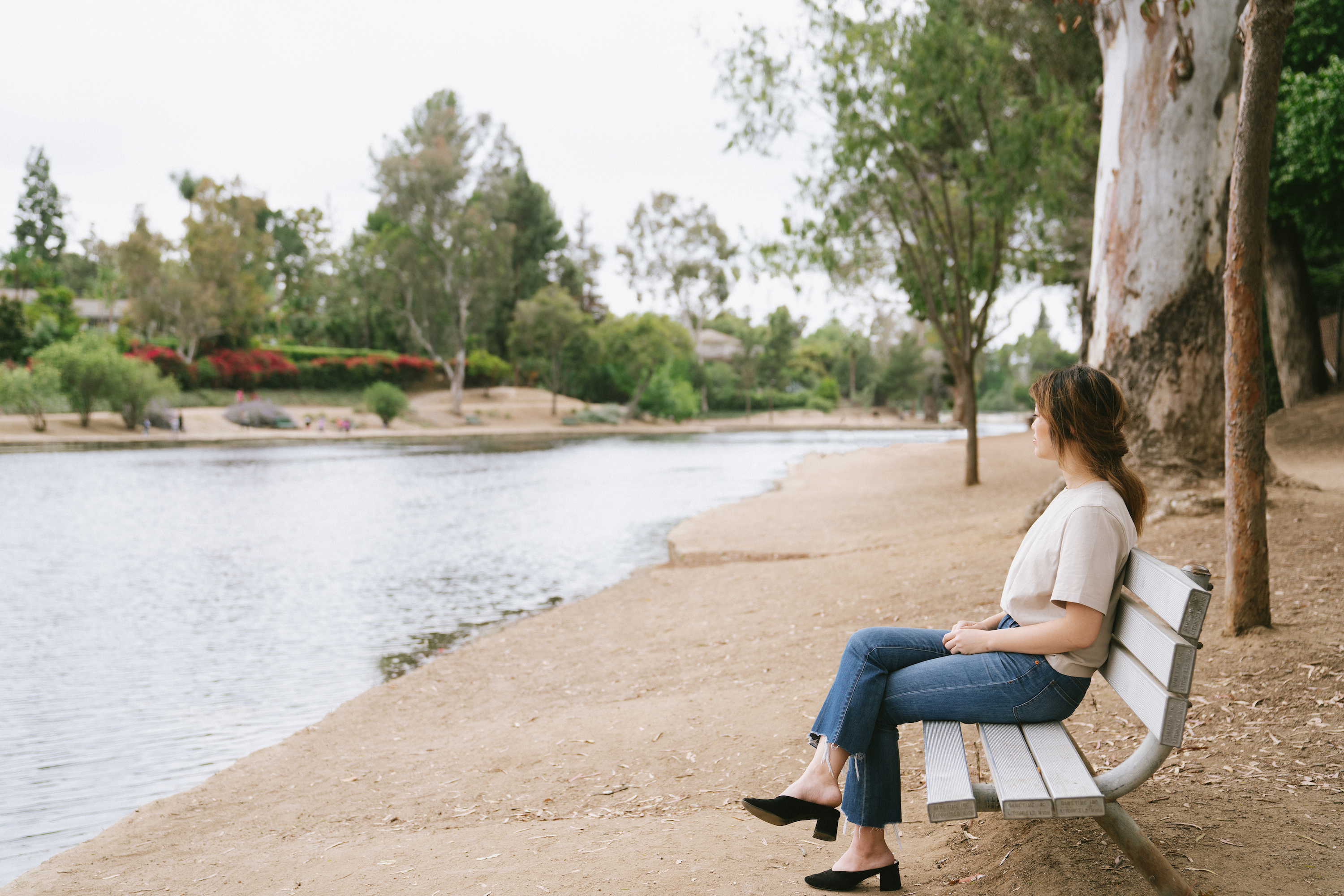
Photography: Ariel Shim
Before Jenn came to Ekko, she couldn’t quite describe the heaviness she often embodied and the dark recesses she frequented. But as she got connected to the body, Pastor Bryan was the first to help name it. “Jenn, you’ve been through a lot,” he said to her, “All these years, you’ve been piggybacking this trauma and it has developed into chronic depression.” He encouraged her to seek help. It was the first time she realized she could ask for it.
“Pastor Bryan helped me realize that it’s not just about reading the Bible enough or praying enough,” she continues.
“Depression isn’t always just a spiritual issue. There are mental and physical components to it. Sometimes you need help, and that’s okay.”
Jenn carries the deep and resounding wounds of abuse, of divorce, of a parent’s death and of financial instability. It’s here in the layers upon layers of trauma that depression took root and built up a distrust and resentment toward God. Ever since she was a child, she felt alone. “I felt like I had to earn love and acceptance. No one was going to be there to help me,” she says. As a child, Jenn was crippled with anxiety and the fear of abandonment.
With help from therapists, she began to learn how to process the wounds from her childhood and how to grieve properly. “Before Ekko, I never realized the trauma that was so clearly in front of me. To revisit it is painful but weirdly refreshing. I have this space to explore and feel safe.”
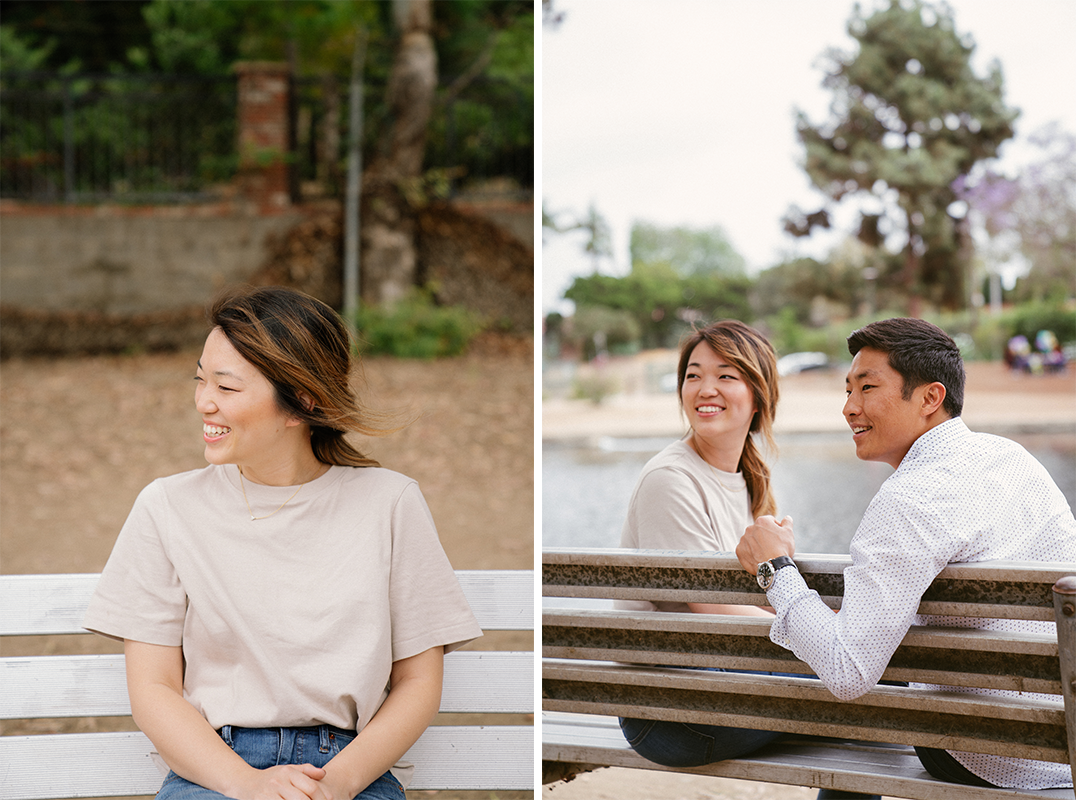
As she tells her story on the couch in their apartment, Jenn and Nuri sit closely, side by side. The lamp behind them blankets their shoulders with a warm hue. Jenn looks at him as she explains her reluctance to try medication. “What if there was no other solution?” she worried. “What if nothing can help me?” In the first few years in her journey toward healing, therapy—supplemented with medication—began to lift the weight in her chest, but it took many months and trial doses to settle on the right prescription. Each shift in medication set off a chain reaction of doubt and confusion.
And after two years of dating, Jenn and Nuri eventually broke up.
It would turn out to be the turning point in both of their lives.
When they first started dating, Jenn coped with all of the trauma and mental illness by avoiding her anger and emotions and focusing on their relationship. But stripped of her emotional crutch and coping mechanisms, Jenn was forced to come face to face with the God she felt so abandoned by. Up until that season in her life, she felt like she had to be put together—even as she was unraveling. But as she found herself alone, without Nuri to lean on, she was able to come to God angry, weak and naked. Messy and defenseless.
“I realized didn’t have to go to God as the strong girl I thought I had to be. I gave Him my raw emotions. And when I did that, I learned that I could really lean on Him with all my weight.”
“The break up was exactly what I needed to heal. God wanted to bring me home. To teach me that He is good and that He is faithful,” Jenn says.
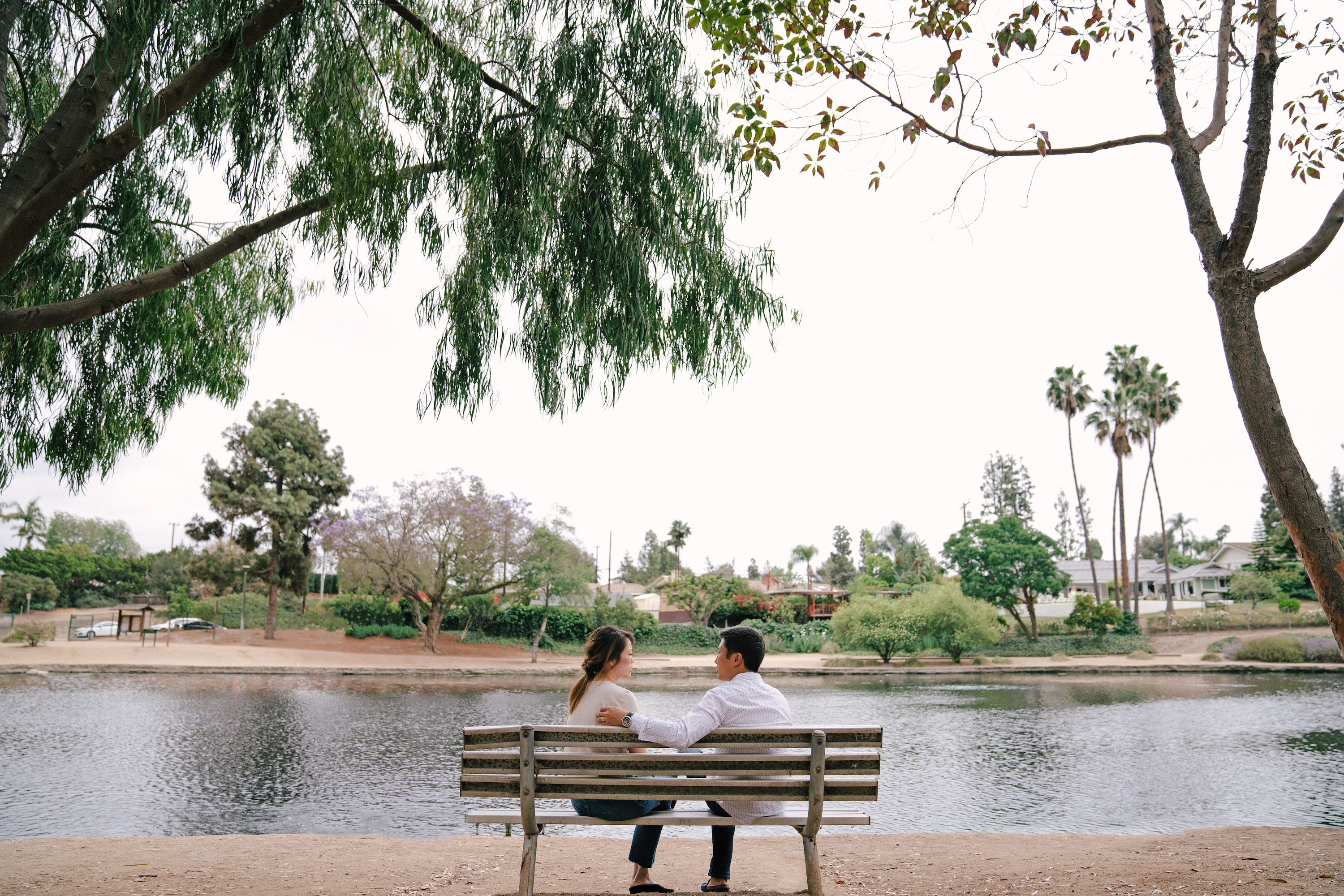
As Jenn was learning that she could trust in God as a Father, Nuri was learning that it wasn’t his job to save her. “I wanted to be her savior or say the right thing, but I learned that’s not what she needed, nor my responsibility,” he continues, “I needed to learn. I Googled a lot.” Jenn giggles as she remembers how she caught him searching, “How to Listen Better.” He lets out a laugh and adds, “I thought nodding was listening.”
Eventually, Jenn and Nuri got back together and eventually got married—though as very different people, their stories profoundly edited and rewritten by God. In June, they celebrate their two-year wedding anniversary. And though she still walks with a limp, Jenn continues to learn more about herself in regards to her story, her marriage and her career. “I’m still learning what it’s like to really be a child, where I can rest my head in His chest. To really trust God as a Father. Trust in His timing and that He’s got everything in His hand.”
“I am learning how to love myself in the present. Not someone I will be, or plan to be in the future, but letting God meet me here.”
Though depression is something that Jenn continues to grapple with and fight through, she says, “I can stand and testify that God saved me and is still saving me.”
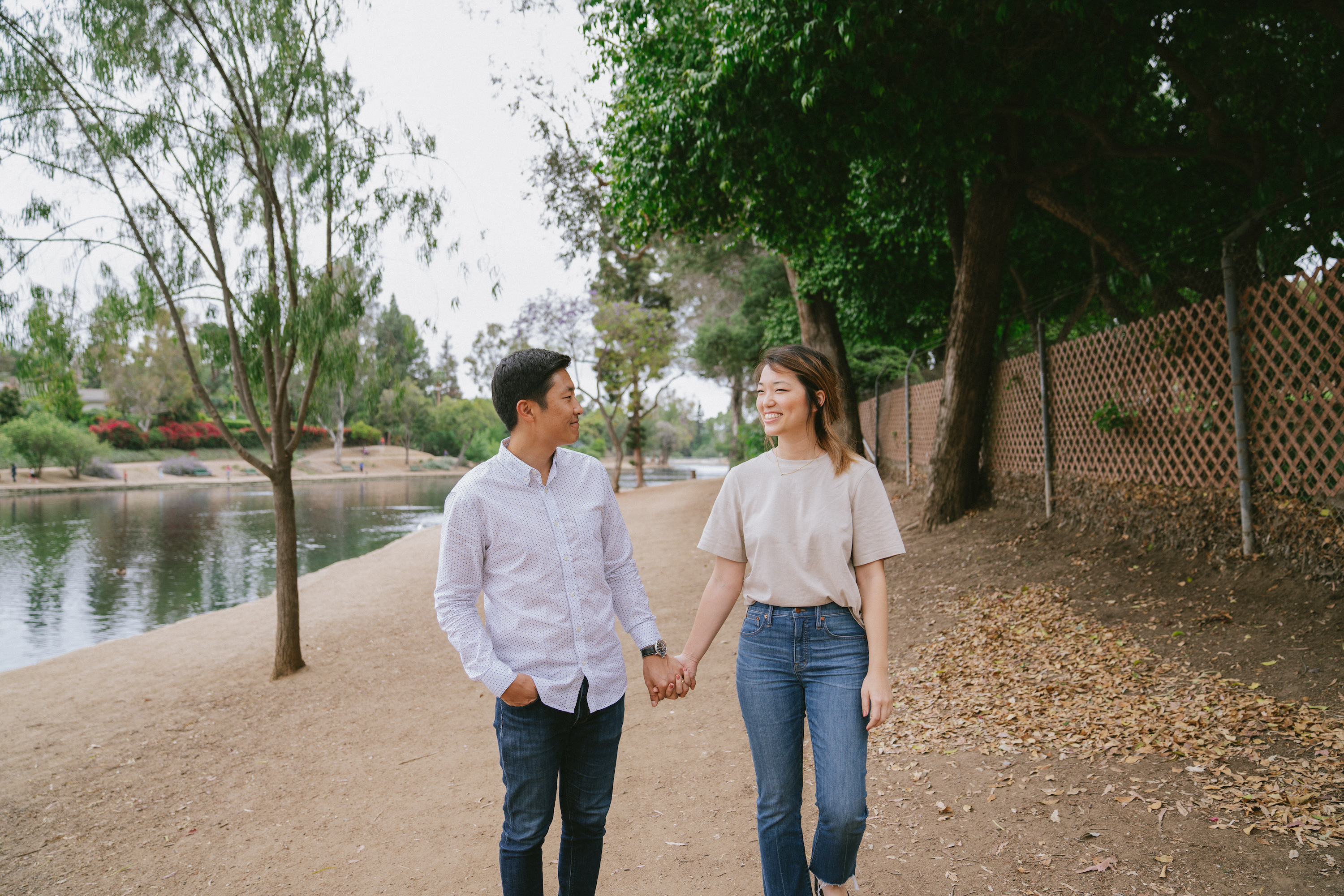
We wrote about Mental Health Awareness and faith last month in our post, Lights and Shadows: “As the church, we offer hope and the healing power of God’s grace through wholeness in community. We are a place of refuge and guidance for those who are suffering.”
If you are struggling, here are some resources to help guide you. Please open up to someone you trust, or to one of our leaders or pastors. Reach out. There is hope.
Reversal of the Yeast (Sung Kim)
At the Table
The fragrance of fresh bread fills the room. New wine chimes as it is poured. The cool evening air trickles in from the windows while He looks at each face, each illuminated by candlelight, as they sit around a colorful array of food.
When we see Jesus at the table with societal misfits, imagine Him sharing in the delight of the freshly baked bread with those around Him. Imagine the crumbs that may have fallen into His beard or His smile as He tastes local wine.
The way He looks each of them in the eyes, those often labeled as greedy, dirty and rejected, those unseen, even hated in their communities. These are the precious people Jesus welcomes as friends to the table. They begin to share their lives and their stories with the Son of Man.
Imagine their excitement as they whip up their favorite recipes and study His face as He takes the first bites. It is the first time they feel at home in their lived experiences. They loosen in His presence, experience profound solace in His friendship.
“Few acts are more expressive of companionship than the shared meal… Someone with whom we share food is likely to be our friend, or well on the way to becoming one.”
— Tim Chester
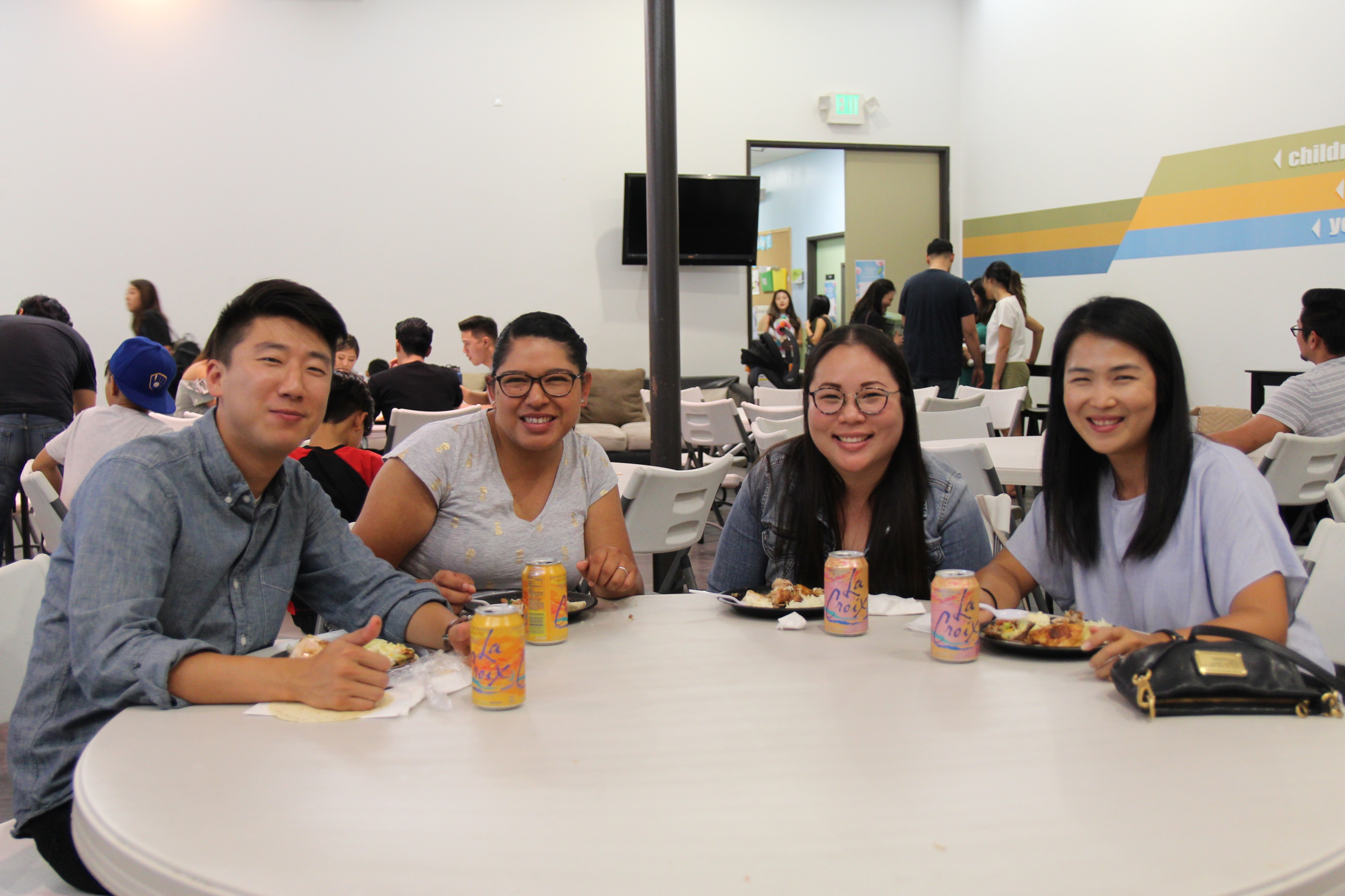
An Ekko member once wrote of covenantal living: “To me, this is the greatest miracle—to find home—to be able to abide, to be able to contribute toward building a home for others.”
At Ekko, in the practice and light of the Gospel, we are reconciled through Christ and drawn together by Christ.
We find friendship with Him.
But it doesn’t end there.
Out of the overflow, we begin to make space for the other. Much like the story of Zacchaeus, who finds utter acceptance and grace in the presence of Jesus, we can’t help but respond with grace, generosity and love.
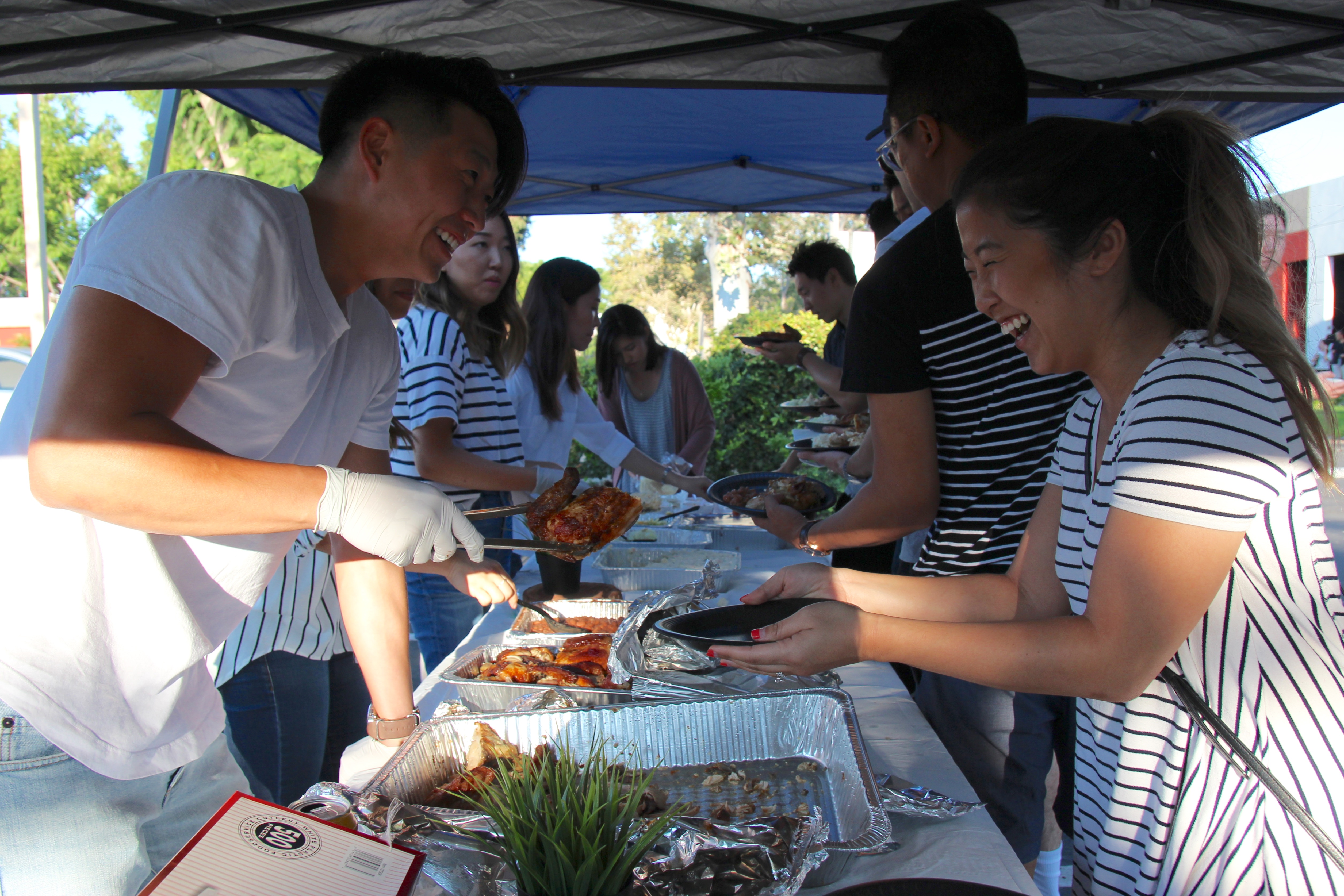
Sunday Supper is one of the ways we practice this Zacchaeus-moment in our body.
More than sharing a meal between members and visitors, it represents the community, friendship and hospitality we get to share. Because we were once welcomed, we now welcome.
“They committed themselves to the teaching of the apostles, the life together, the common meal, and the prayers.”
— Acts 2:42 (The Message)
So whether you have been a member for a long time, or are a newly minted Orthopraxis grad (Ekko’s introduction to discipleship), we who have been welcomed, now get to make room. We get to participate in what God is doing.
And we learn to save a seat at the table for other brothers and sisters like Jesus often did: at the table.
Please Don’t Take Off Your Clothes (Isaac Chong)
Through Crowds and Static
She presses through the unforgiving elbows. Fighting through the resistance of bodies and noise, feeling the harsh eyes and sharp comments as she fumbles through the crowd. Her body is cumbersome with embarrassment, but she’s getting closer now. She can almost hear it. His faint voice, unhurried and gentle. Quiet and constant through the cacophony of voices. Desperation quickens in her spirit as she falls to a crawl. Careless, heavy feet drill into her fingers and hands. If she could just touch His robe, even just the hem.
She stretches one last time, and at that moment, when her fingers meet the fabric, everything in her changes.
She’s still clutching her stomach when her body begins to experience this foreign, yet familiar stillness for the first time in 12 years. It is as if all the static in the world suddenly became quiet.
“Who touched me?” she hears. The crowd loosens around Him.
She is still on her knees when His eyes meet hers.
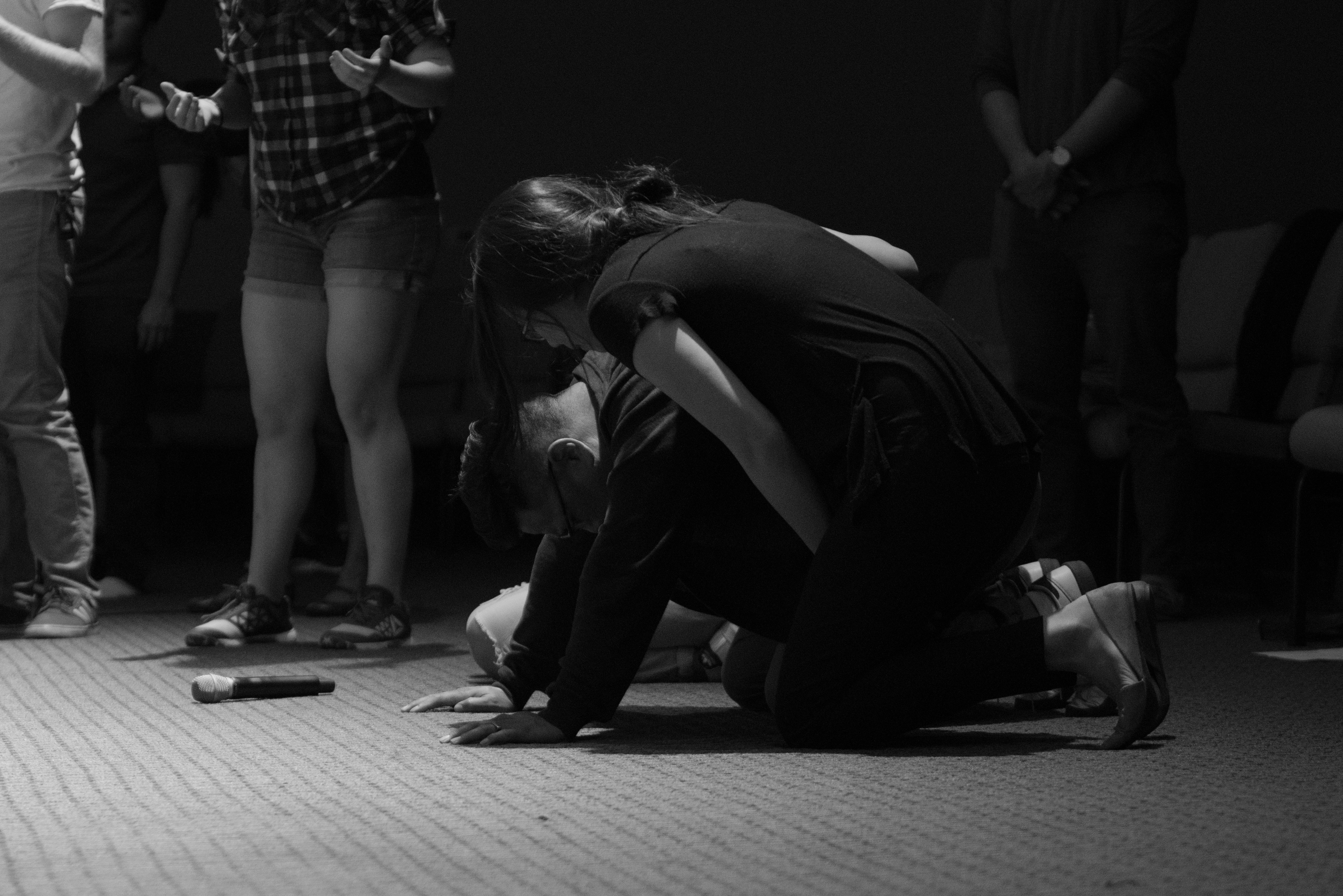
Often, we don’t find ourselves in moments of desperation like this unnamed woman who is fighting to meet Jesus on the road. But we have all felt a similar yearning in our spirits for a connection with Him. Some of us have been those in the crowd watching others have this moment with Him and found ourselves curious and inspired wanting our own experience. Some of us believe and know that we could have that connection, but our lives are too loud and too imposing; the crowd too large. We are altogether too far, too tired and too busy. We have too much work, not enough time, no one to watch the kids whose fingers are sticky again – all legitimate things that pull us in all different directions.
With anything from anxious thoughts to indifference jostling around us like jutting shoulders in a crowd, we shuffle through life, straining to hear what God is saying. Where we can’t quite make out what He’s saying or where He’s going. Too tired to wrestle through the distractions and noise to reach Him.
But we all crave that moment, don’t we? That moment, when everything silences around us, where the crowds part like fog melting away in the afternoon, and we are met with the tenderness of God calling to us, “Son.” “Daughter.”
We need these moments to connect with Jesus, where you break through the restless thoughts and red lines on the map and looming deadlines to touch the edge of His robe.
To abide with Him and to know that you are seen, heard and known.
To be refreshed in His presence.
To actually hear what He’s saying.
This is what Kavannah Nights are for: it’s us creating space to engage with God.
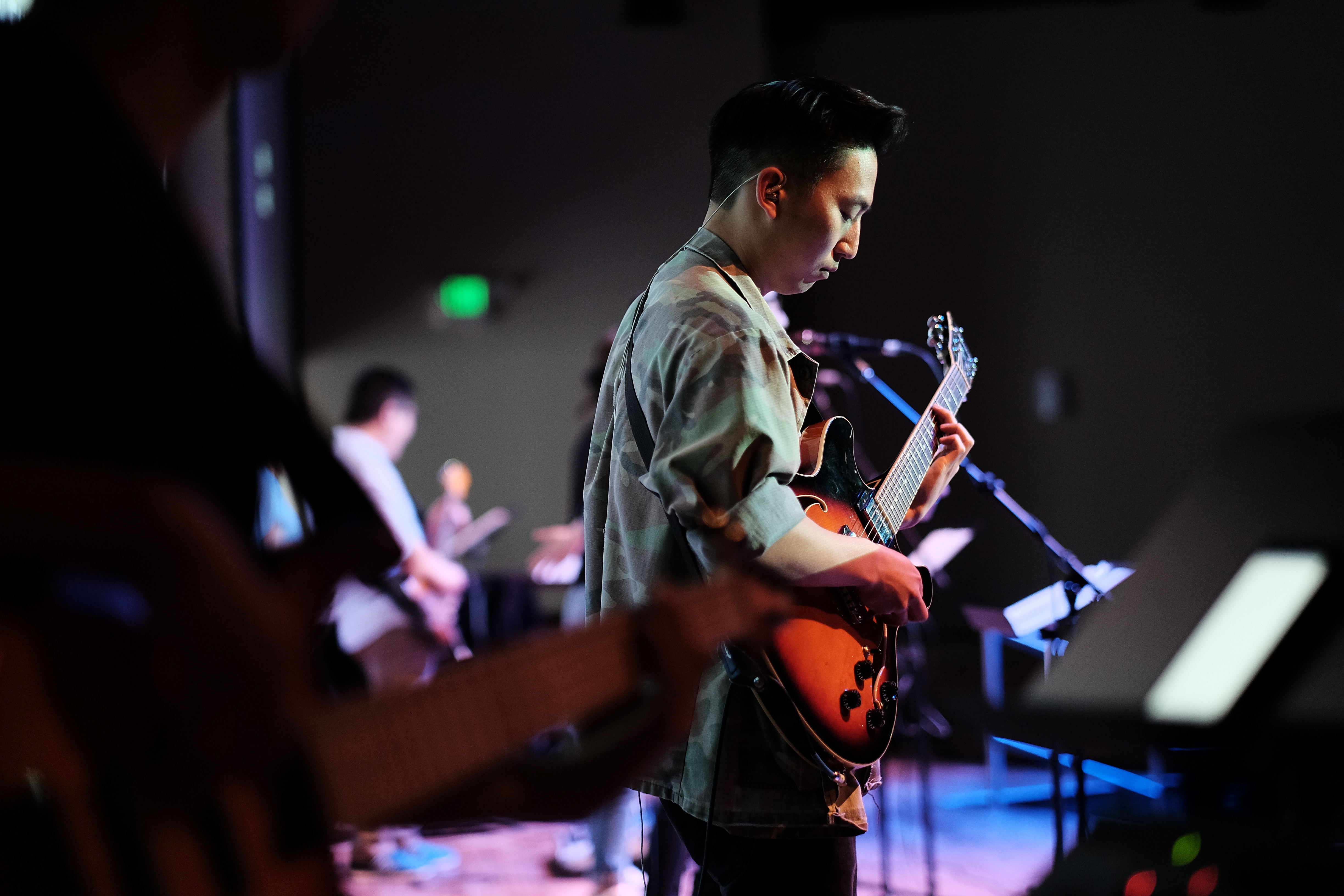
And just like the unnamed woman in the Gospels, it requires us to fight through our fatigue, our apathy, our contented spirits or busy schedules in order to reach out, even to crawl, to connect with Him as a body.
Because we need Him. We need to connect with Him — especially when the resistance is high and we are tired or numb. As disciples of God, we need time to abide with Him, to worship Him individually and corporately to download His heart, to remember who He says we are and to engage in what He’s doing.
“Daughter,” He says to the unnamed woman with a smile, His hand outstretched bringing her bruised body to her feet. He is everything and nothing she hoped He would be. In His presence, she is healed, but more importantly, she is seen and known.
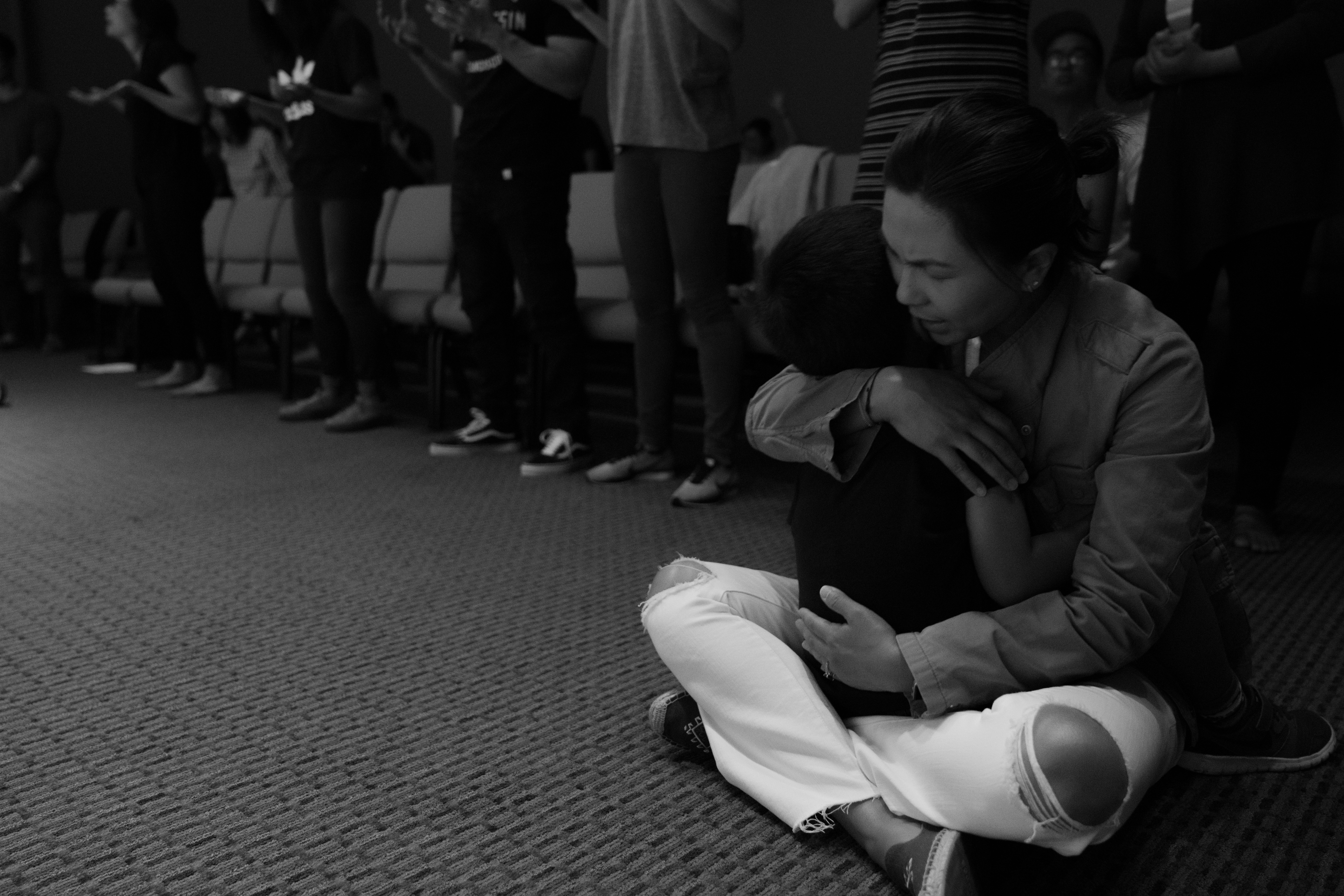
Kavannah Nights, Ekko’s Worship and Prayer Nights, will take place on the first Fridays of June (6/1/), July (7/6), and August (8/3) in Ekko’s summer season.
They will begin at 8 PM at Ekko Church.
God Reality (Isaac Chong)
Lights and Shadows
There are days when the sadness weighs like lead in your chest. When your ribs cave into themselves to board up the broken pieces of your spirit — to hide, to protect, to disappear. I shouldn’t still be dealing with this, you think to yourself. I should be healed of this by now.
Frustration binds itself with every cell until you are at war with yourself. Breath becomes shallow; thoughts billow like smoke to poison the air. Until you can’t distinguish between what’s real and what’s not. Until you can’t remember if morning will come again.
I am too much. I am too messy. I am too broken, you reason, tightening your lips. In days like this, you forget the refrain of this song.
You forget that you are not defined by your storms.
You forget that healing is a process. That it can take a moment, or it can take a lifetime.
Like bones, minds can break and they can mend. And they can break again. And when it gets cold, sometimes old fractures can still ache.
And hope, even if you can’t see it at the moment, is ever present and ever constant.
Until the dawn comes, as it inevitably does, to warm the dark corners of your mind and settle like a salve on the wounds, wait and press in. Until the prayers you have whispered can be more than a breath. Until you have remembered the truths that His grace and restoration are not static, but moving to and fro like waves painting the shoreline. They are ceaseless in their step; they are unconditional in their ebbing and flowing.
When some days and seasons are harder than others, remember that the presence of mental illness isn’t a metric of your faith or spirituality; that it can affect members, leaders, and pastors. We all experience this tension of light and shadow within, turning in varying degrees and contrasts.
Dr. Jessica Lee, a clinical psychologist and Ekko member, writes that mental illness “isn’t something that goes away if you pray harder or stop sinning. Some of the most depressed people are some of the most deeply spiritual people I’ve met.”
Because just as one of our panelists said on Mental Health Awareness Sunday, “God can heal our deepest hurts and pains, but if you have a broken bone, you need to see a doctor.” If you are suffering from a mental health condition, therapy and medicine are God-given tools to guide you as you wade through the waters of mental health.
For some, recovery can be a season.
For others, it a can be a lifetime.
And that’s okay.
As the church, we offer hope and the healing power of God’s grace through wholeness in community. We are a place of refuge and guidance for those who are suffering.
In His ministry, Jesus cared for the mentally ill and the sick.¹
“The Spirit of God, the Master, is on me
because God anointed me.
He sent me to preach good news to the poor,
heal the heartbroken,
Announce freedom to all captives,
pardon all prisoners.” — Isaiah 61 (MSG)
Jesus’ healing is twofold: he heals the condition of our minds, spirits, and bodies, and he also restores us back into our families and communities. As Rick Warren writes, “In Christ’s name, the Church extends compassion, acceptance, and unconditional love to all who suffer from the pain of mental illness, and as his Body, we offer hope and the healing power of God’s grace.”
Our hope isn’t rooted in the fact that by focusing on God all our problems and sickness go away, but rather, our hope is in Jesus who enters into our mess and heals us. He is our peace from the unrest in our souls. There is not one of us who is too far, too broken or too dark for Him.
He is our hope that is ever-present and constant. He is the light that pours through the crevices in our spirit.
And it is because of him, that we can, in turn, be a safe place for those in and around our midst suffering from mental health issues — even as we are being healed in the process.
May is Mental Health Awareness Month. According to a study done by Mental Health America, one in five Americans lives with a mental health condition.
If you are struggling with mental illness, here are some resources to help guide you. Open up to someone you trust or one of our leaders. There is hope.
Mental Health Professional Referral List
Mental Health Awareness Sunday
¹ Matthew 4:24
